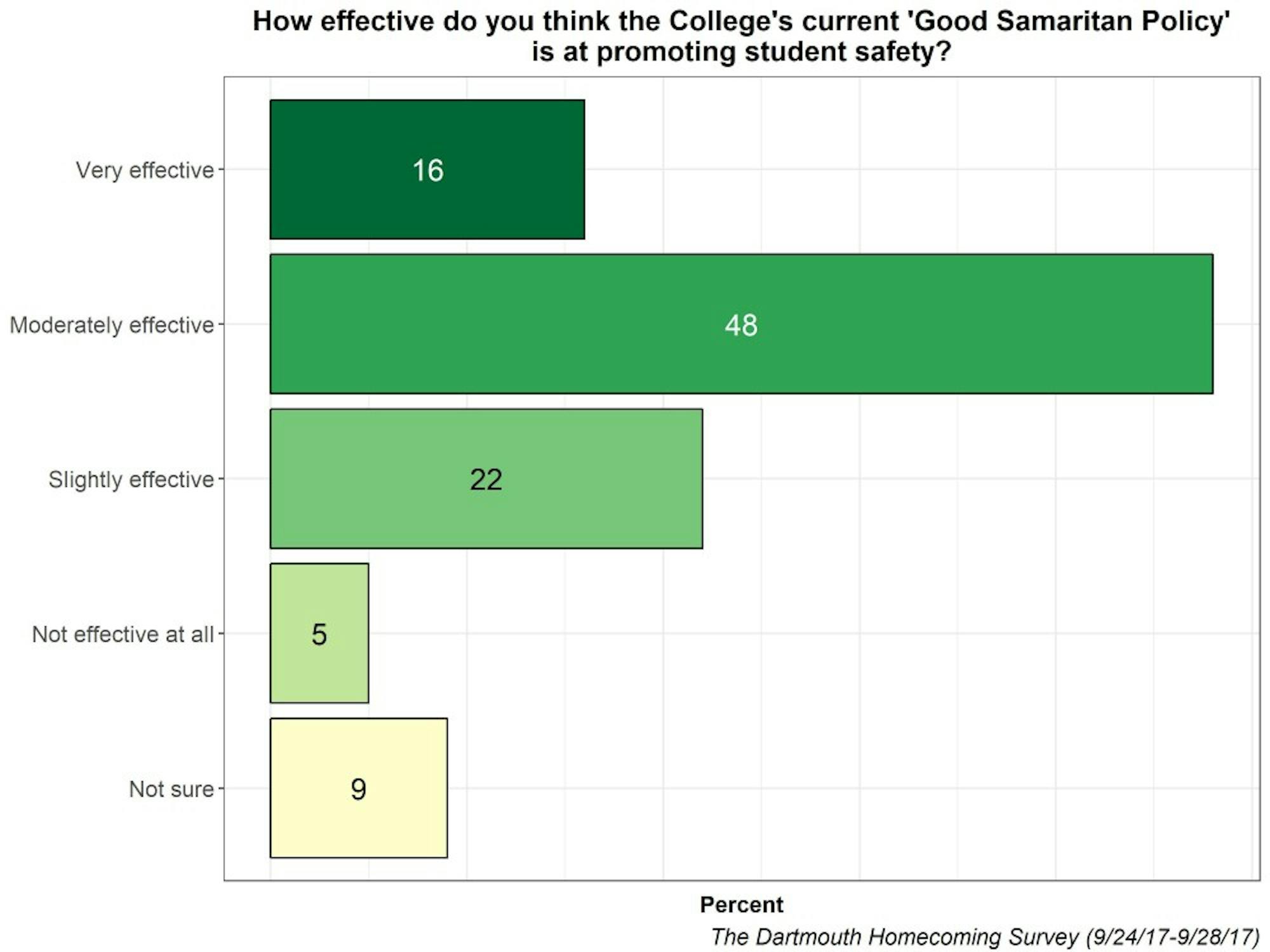This article was featured in the 2017 Homecoming Issue.
This academic year, changes to the Good Samaritan policy include expanding the policy to include drug-related incidents and allowing undergraduate advisors to make Good Sam calls rather than having to file formal reports with the College.
According to the Office of Student Affairs’ website, the Good Sam policy provides emergency services to students who have been impaired by drugs or alcohol. Any student that calls Safety and Security regarding the alcoholic impairment of another student will not be subject to disciplinary action by the College unless he or she violates another part of the drug policy.
Working in conjunction with Judicial Affairs, students’ feedback and other partners, the Office of Student Affairs made these changes to the Good Sam policy to promote students’ safety, according to senior associate dean of student affairs Elizabeth Agosto.
“The Good Samaritan policy was designed and created to make sure that students were getting the help that they needed and that we were reducing as many barriers as we could to getting that help to students,” Agosto said. “We’re going to be watching pretty closely to see what this does in terms of impact on student calls, information that we’re gathering on what drug use looks like on our campus and how we’re getting assistance to our students.”
According to director of Judicial Affairs Katharine Strong, changes were made after the annual policy review. Both Strong and Agosto cited student concern about barriers to calling for help as the reason for the inclusion of drug-use in the policy.
“I hope that any student who sees a friend in need would call regardless,” Strong said. “But I’m hoping that we’ve helped students feel confident in making that call.”
Strong also stated there is no differentiation in the Good Sam policy between how drug use is treated versus how alcohol use is treated.
Changes to the policy went into effect at the beginning of fall term. According to Agosto, reactions to the policy changes have been very positive.
“Overall, the change makes sense and is a reflection of our commitment to safety,” she said.
Prior to last month, when this year’s policy change was implemented, undergraduate advisors’ calls were not considered to be under the umbrella of Good Sam calls, which had an impact on how UGAs could handle a situation involving alcohol. Agosto hopes that these changes will encourage UGAs to feel more comfortable making calls.
According to a survey conducted by The Dartmouth from Sept. 24 to Sept. 28, 48 percent of the 677 students surveyed believe that the Good Sam policy is moderately effective, while 16 percent of students surveyed believe that the policy is very effective.
From the same survey, 65 percent of students surveyed believe that adding drug use to the existing policy will make students more likely to take advantage of the Good Sam policy.
According to Agosto, the College has seen an increase in Good Sam calls in the past few years, with this past year having the highest number of calls yet.
Simon Ellis ’20 said that an increase in Good Sam calls is indicative of the success of the program.
Last fall term, Ellis made a Good Sam call for an intoxicated friend after bringing her to her dorm and realizing that her UGA could not make a Good Sam call.
“We assessed the situation and believed it was the right course of action,” he said, adding that it was not a difficult process to go through.
Ellis believes that allowing UGAs to make Good Sam calls will be very helpful, and that these changes will hopefully remove more barriers around making a Good Sam call.
Last year, Ellis was also involved in an incident where he felt he had needed to make a Good Sam call for himself, but his friends were too of the repercussions of making the call, which he attributed to the stigma surrounding Good Sam calls.
“If you don’t have a direct interaction with the program, you’re scared of it and too afraid,” he said, adding that freshmen do not have experience with the Good Sam policy and did not know what exactly it entailed.
Ellis hopes that people will continue to take advantage of the policy.
“I’ve honestly never had a negative experience with the policy,” he said. “I think it’s a lot better than letting Safety and Security handle things alone. When you call Good Sam, everyone is very receptive and it’s really non-judgmental.”
Another student, who asked to remain anonymous for privacy concerns, also hopes that more students feel comfortable enough to use Good Sam. Last fall, this student was picked up by Safety and Security while intoxicated and had to go through a Judicial Affairs hearing.
“I’ve never seen [Good Sam] in a negative light — I definitely wish it was something that had been used on me [in that situation],” the student said. “People don’t want to [make a Good Sam call for] their friends — but the other option is so much worse … I feel better about [the policy] as a whole knowing that it is offering more protection [than before].”




